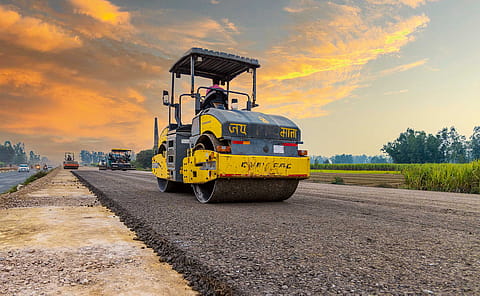Entry barriers, project lifecycle planning key to faster highways rollout: Experts
Experts call for project lifecycle planning with codes and specification of projects being planned in advance in order to fast-track projects

Highway construction industry and experts have called for a slew of measures including entry barriers in project prequalification, project lifecycle planning approach, and betterment of the utility and land acquisition ecosystem for faster implementation of the highway projects in the country. The highway sector also called for faster dispute resolution, which will help the sector in the long run.
Speaking at the (Assocham) annual flagship infrastructure conference and awards, IRB Infrastructure CEO Sudhir Hoshing raised the issue of the entry barrier to pre-qualification of bidders for the highway projects. “There has to be an entry barrier in pre-qualification for the build operate transfer (BoT) and hybrid annuity model (HAM) projects. A newcomer company in the sector may be allowed to do projects worth ₹500 crore, while the mid-sized companies could implement projects having capital cost between ₹500 and ₹1,000 crore. As the size of the project goes up, a lot of things need to be taken care of, which the smaller companies may not be able to handle. Bigger companies do not quote lower bids just for the sake of winning the project,” Hoshing said.
“The prequalification has to be in buckets, so that there are only specialists to handle the projects worth ₹2,000 crore and above. The other issues are utility shifting and land acquisition, which keep on happening. State government support is needed,” said Hoshing.
Experts find the suggestion valid. “Pre-qualification was diluted for a simple reason. There was a time when we were building only 10 km a day. So the size of the bidding industry needed to be expanded for companies to come over for the project implementation. Now the situation is different and tighter norms could be put in place for large-scale projects,” said RK Pandey, former member (project), NHAI, adding that dispute resolution has come a long way but a lot still needs to be done. The government is currently constructing highways at a pace of 38 km a day and plans to enhance the pace to 45 km a day.
Experts also called for project lifecycle planning with the codes and specification of the projects being planned in advance in order to fast track the projects. “Project lifecycle planning is being ignored. It is not only the right of way, but the right engineering, design, milestone planning and future challenges need to be built into the lifecycle planning of the project,” said Neeraj Agrawal, COO, Tata Projects.
“We talk in terms of capital cost but we do not take into concern the lifecycle cost, the construction and maintenance for over a hundred period time. Codes and specifications need to be designed in advance, even before the project starts. Only then the cost and benefit will be much better,” said Pradipta Banerjee, department of civil engineering, IIT Mumbai.